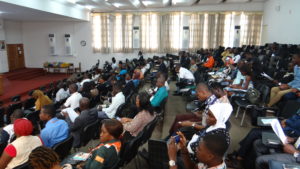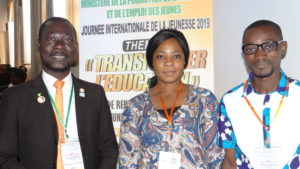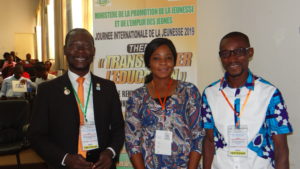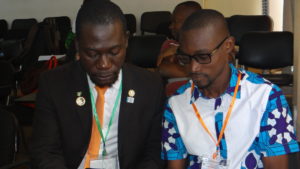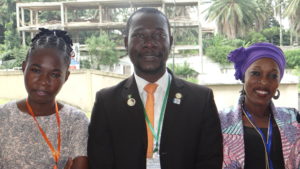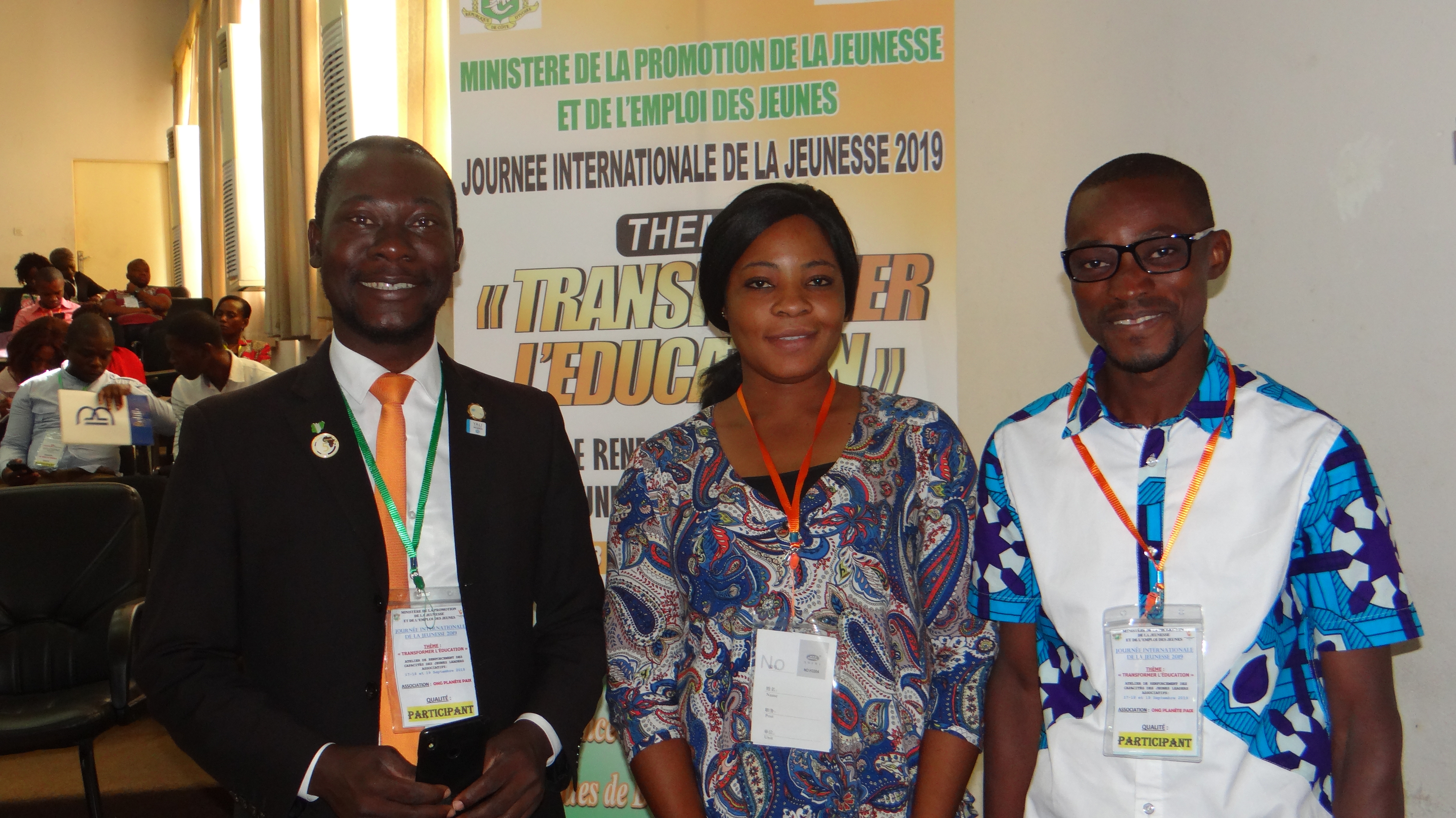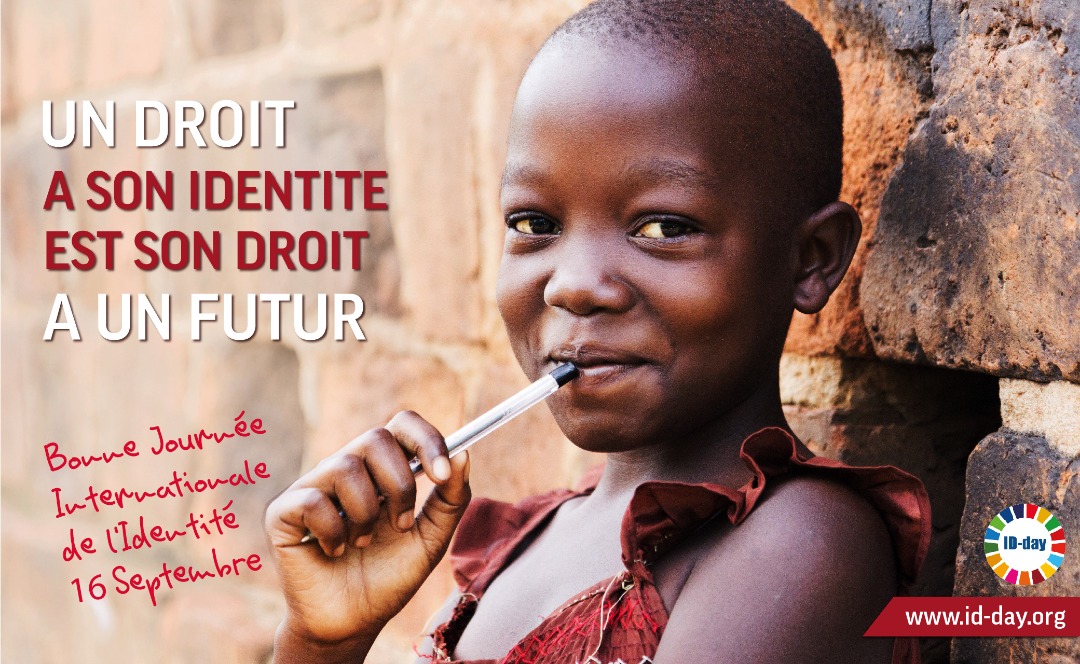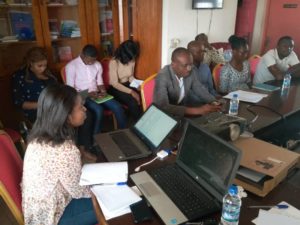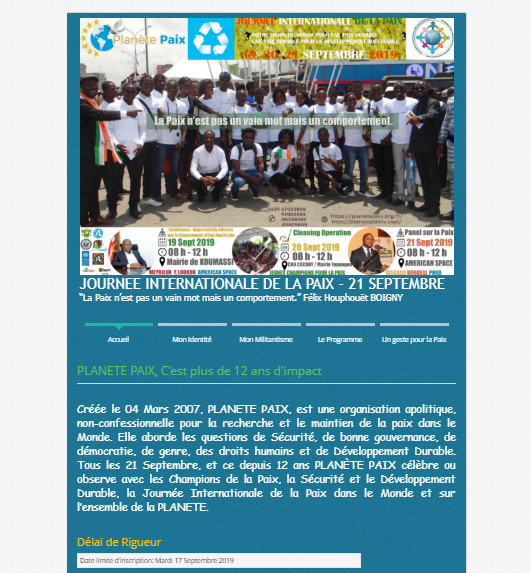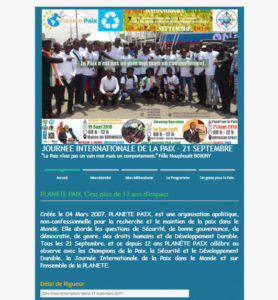From September 17 to 19, 2019, the strengthening workshop was held
capacities of young people at the National Center for Scientific Materials, located in Cocody Saint-Jean. The workshop, organized as part of International Youth Day under the theme “Transforming Education”, brought together 64 youth organizations including PLANETE PEACE out of 67 expected. It was intended for Presidents, Secretaries General and Treasurers General. A total of 189 young people participated in the workshop, which was opened by the Director of Community Life and Youth Capacity Building. It aimed to improve associative governance. To achieve this, the following modules have been delivered successively:
– Leadership development by Mr. YAO Aquilas,
Consultant, Leadership and Development Trainer;
– Associative governance and civic responsibility, Mr. Béma COULIBALY,
Director of Volunteering and Community Programs at
State Secretariat responsible for Civic Service;
– Correspondence writing techniques, by the Commander
OULEÏ Bonaventure, Teacher-Trainer at the National School
Administration;
– Meeting management, by Commander OULEÏ Bonaventure,
Teacher-Trainer at the National School of Administration;
– Associative governance, by Mr. DIOMANDE Lassiné,
Director of Associative Life and Capacity Building
Youth;
– Debate techniques, by Mr. FIENI Pacôme, coach
Public speaking trainer.
Module 1: Leadership Development
The trainer emphasized the different stages of evolution of a
group, namely:
– Stage 1: childhood, team training;
– Stage 2: adolescence;
– Stage 3: adulthood;
– Stage 4: mature age;
– Stage 5: decline.
It emerges from this presentation that the president’s staff have 5 needs which are:
– need for security,
– need of recognition,
– need to belong,
– need for progression,
– need for accomplishment.
All in all, it should be remembered that the greatest quality of a leader is to work to build a team that is both interdependent in his presence and autonomous in his absence.
Module 2: Associative governance and good citizenship
The trainer defined citizenship as the virtues that qualify the good behavior of the citizen within his Community and within his Nation. He then developed the 4 Principles of Civicism which are:
– respect for the Institutions;
– dedication for his Nation;
– respect for the Public Thing;
– National Solidarity.
The five Symbols of the Republic, namely the National Emblem, the
Motto, the National Anthem, the Coat of Arms and the Portrait of the Head of State were also explained.
Bringing civic responsibility to the voluntary sector, it revealed the
characteristics of the good citizen in the associative field. So the
President or citizen member of a youth organization is one who:
– respects and maintains the goods of his association,
– pay the contributions fixed by his association,
– regularly organize the meetings provided for by the texts,
– agrees to leave when he is reached by the age limit or when he
is beaten in the elections,
– refuses to modify the texts to maintain themselves.
Module 3: Writing correspondence
The trainer gave general information on administrative drafting before highlighting the report and the report.
As for generalities, in addition to the characteristics of the
administrative writing, expressions expressing respect for
hierarchy were presented. The typology of administrative documents highlighted the administrative letter in personal form, the administrative note, the minutes, the report, the report, the certificate, the attestation and the notice and press release.
In particular, the report can take several forms: activity report, mission report or meeting report. As for the report, which is the telling of facts to report to his superior, it comes in several forms: activity report, handover report, study report, inspection report and disciplinary report. Regarding meeting management, it is the set of techniques and methods for effectively organizing meetings to inform,
communicate goals, solve problems; in short, to get a better profit for both the structure and the
participants. The role of each actor has been defined in meeting management as well as the different phases of meeting management.
Module 4: Associative governance
After defining the association according to article 1 of law n ° 60-315 of September 21, 1960, the different types of associations were presented: Registered associations and associations recognized as being of public utility. The associations declared are those which have submitted a request for declaration to the prefecture or sub-prefecture of their place of practice.
The following must be attached to the declaration request:
* 3 copies of the statutes;
* 3 copies of the internal regulations;
* 3 copies of the minutes of the General Assembly
Constitutive;
* 3 copies of the list of founding members;
* 3 copies of the list of the management body with opposite
names: function, profession, nationality, age,
the mailing address of each of its members.
Recognized associations of public utility, are those which benefit
of subsidy entered in the state budget.
Associations in general can receive donations and legacies under
condition of an authorization given by decree of the Prefect of the Department
where is the headquarters of the establishment when the value of the gift is
less than or equal to ten million (10,000,000) CFA francs, and by decree
taken in the Council of Ministers when liberality exceeds ten million.
The management of an association is essentially based on organs:
the General Assembly (GA), the Board of Directors (CA), the Bureau
Executive (BE) (or Executive Council (CE), Management Council (CG)) and the
Statutory auditor (CC). The role of each of these bodies has been
defined.
Dissolution is the act by which the association is no longer recognized. She
can be either voluntary or statutory or forced.
The management of an association is administrative, financial and
accounting.
Module 5: Debating techniques
The trainer defined the debate as a discussion, a speech aimed at
to bring the contradiction to one or more adversaries over one or more
topics.
To better approach a debate, it is necessary:
– know the subject and forge his conviction;
– know your opponent;
– to know the recipients of his message;
– to be relevant, precise and clear in the expression of his thesis;
– to seek to destabilize the opponent;
– to know how to make concessions.
A debaterer’s argument must be based on facts, constructions
social, scientific knowledge, data from the experience of
life, thoughts, assertions of authority and testimonies.
In total, to build your argument, you must:
capture the benevolence of the target audience;
clearly state your thesis by locating the difference with the opponent;
put forward its arguments;
refute the arguments of the opposing thesis;
conclude by reiterating its position.
The capacity building workshop for young associative leaders,
ended with the closing ceremony chaired by Mr. Mamadou
TOURE, Minister of Youth Promotion and Youth Employment.
In his speech he affirmed that strengthening the capacities of young people
“Will necessarily have a positive impact on our society”. Monsieur the
Minister also denounced the behavior of young people who
profaned the grave of Dj Arafat on August 03, 2019. He said that one cannot
not reduce the youth to this incident because the Ivorian youth are
all these young people who, despite their precarious living conditions, get up
every day to contribute to the transformation of our society. The
youth of Côte d’Ivoire, it is also these youth leaders who
participate in the development of Côte d’Ivoire.
To participants who have received lessons, among others, on the
citizenship, he urged them to engage in the public interest.
The ceremony ended with the delivery of the end of training certificate.
